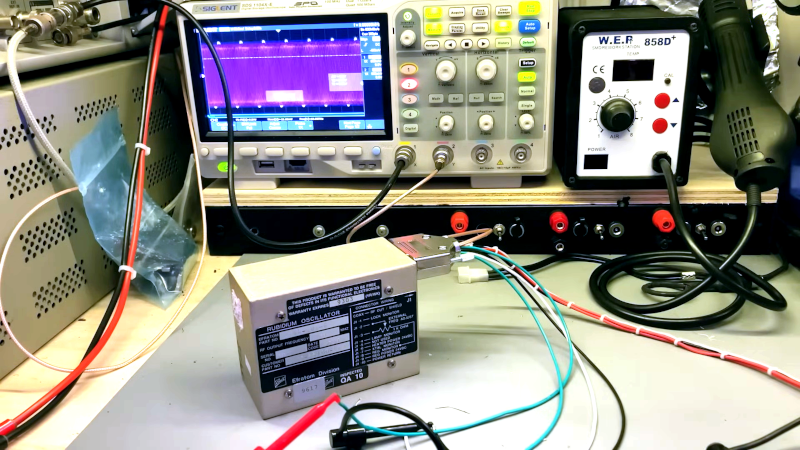
We think of crystals as the gold standard of frequency generation. However, if you want real precision, you need something either better than a crystal or something that will correct for tiny errors — often called disciplining the oscillator. [W3AXL] picked up a rubidium reference oscillator on eBay at a low cost, and he shows us how it works in the video you can see below. He started with a GPS-disciplined oscillator he had built earlier and planned to convert it to discipline from the rubidium clock.
The connector looks like a D-shell connector superficially, but it has a coax connector in addition to the usual pins. The device did work on initial powerup, and using a lissajous pattern to compare the existing oscillator with the new device worked well.
We think the output might have been a little cleaner with a 50-ohm terminator on the scope. The clock uses a rubidium vapor lamp and a glass cell containing rubidium. A voltage-controlled oscillator excites the cell with a 6.8 GHz signal. Rubidium atoms can exist in three states. Because of a filter in the system, the cell will eventually reach a steady state where all the atoms are locked in one state. But the voltage-controlled oscillator can change that if the frequency is exactly right.
When the cell is in the steady state, the light passes through it with very little loss. However, if some atoms are in a different state, the cell will block some light, and a photocell can detect this. By tuning the oscillator with feedback to reach a minimum output from the photocell, you get a very precise output.
By the end of the video, the GPS oscillator never totally locked with the rubidium standard, although they were close. However, there is no way to know which of them was further off the actual 10 MHz reference.
We are looking forward to part two, where he actually converts the GPS-discipline oscillator to use the new atomic clock. We’ve seen this done before, of course. Cesium is even more precise, but there are things still better than that.
0 Commentaires